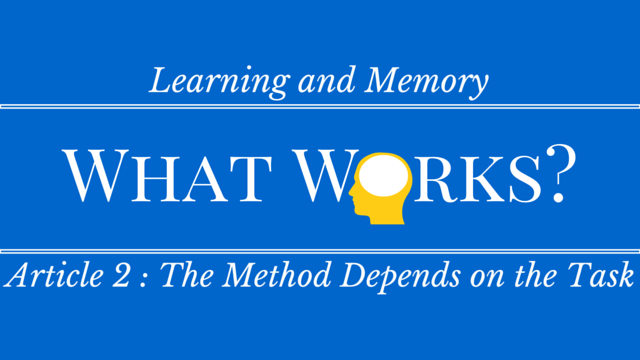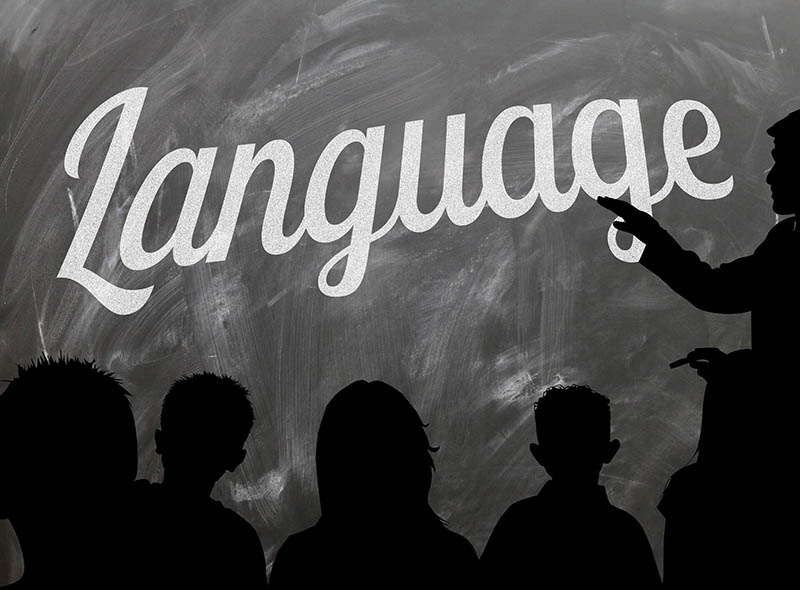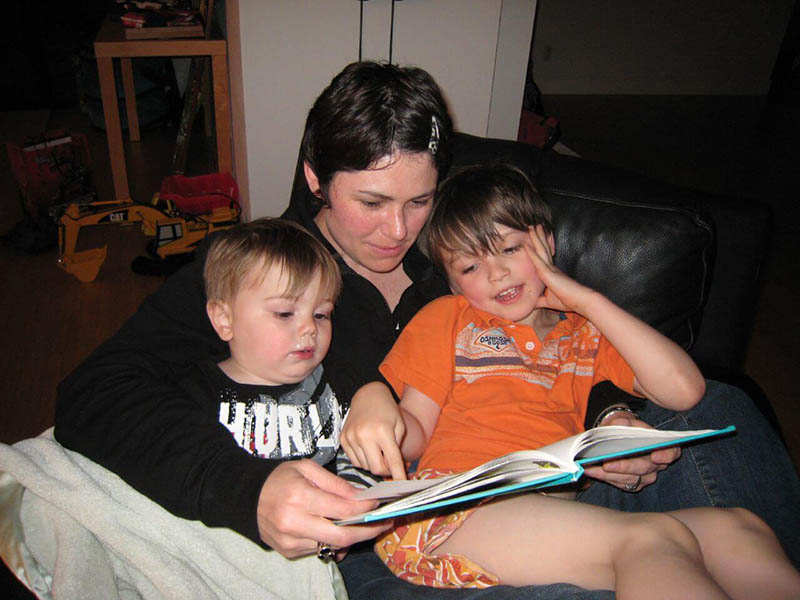Learning and Memory-What Works? The Method Depends on the Task
 Universities have been offering psychology courses for over 140 years, since the 1870s. You may have even taken one of these courses. Do you remember the principles of learning and memory from your college Psych 101 course?
Universities have been offering psychology courses for over 140 years, since the 1870s. You may have even taken one of these courses. Do you remember the principles of learning and memory from your college Psych 101 course?
Decades of research can guide us in how to be smart consumers of products and services that claim to improve learning and memory.
Over the next weeks I’ll be reviewing four principles for improving memory and learning based on this research consensus, and I’ll explain how each principle is used in Lexercise therapy.
The Best Method Depends on the Task.
 There’s no one type of practice that works well for all types of learning and for all conditions. The best method depends on the task to be mastered. For example, the type of practice that works best for reading may not be the best for spelling. The best type of practice for vocabulary is unlikely to be the most helpful for learning to formulate clear sentences. A curriculum should provide practice using different types of activities and contexts, especially when the learning task is something as complex and multi-faceted as reading and writing.
There’s no one type of practice that works well for all types of learning and for all conditions. The best method depends on the task to be mastered. For example, the type of practice that works best for reading may not be the best for spelling. The best type of practice for vocabulary is unlikely to be the most helpful for learning to formulate clear sentences. A curriculum should provide practice using different types of activities and contexts, especially when the learning task is something as complex and multi-faceted as reading and writing.
Lexercise interweaves all the elements of skilled reading and writing in each session, from speech-to-print:
speech sounds > letters > spelling patterns > meaningful word parts > vocabulary > sentences > text
 Throughout the week, reading, spelling and writing practice is provided through many different types of activities, including games, review videos, and interactive, table-top activities. Teaching parents along with kids means parents can take advantage of teaching opportunities that come up in the course of everyday life between instructional sessions.
Throughout the week, reading, spelling and writing practice is provided through many different types of activities, including games, review videos, and interactive, table-top activities. Teaching parents along with kids means parents can take advantage of teaching opportunities that come up in the course of everyday life between instructional sessions.
Lexercise understands the variety of reading, spelling and writing tasks demanded in today’s schools, universities and workplaces. That is why we include computer-based practice games and brief, parent-facilitated activities that encourage questioning, conversation, critical thinking and application.
Finding the best practice method starts with a deep understanding of the material to be learned and the context where it is to be used. Lexercise therapists can help!
You can screen your child for dyslexia in 10-15 minutes here >>>
If you enjoyed this article, make sure you read part one and three in the series. You can read the first here and the third here.
Photo Credit: Flickr.com- Neeta Lind “IMG_3639“
Improve Your Child’s Reading
Learn more about Lexercise today.
15-minute consultation
Sandie Barrie Blackley, MA/CCC
MA/CCC - Cofounder and CKO
Sandie is a speech-language pathologist with more than 30 years of experience in the private practice sector. She is Visiting Assistant Professor of Communication Sciences & Disorders at University of North Carolina Greensboro, and founder/owner of the Language & Learning Clinic, PLLC, a private practice in Elkin, NC, and Greensboro, NC, specializing in communication disorders, including disorders of reading and written language.


Leave a comment